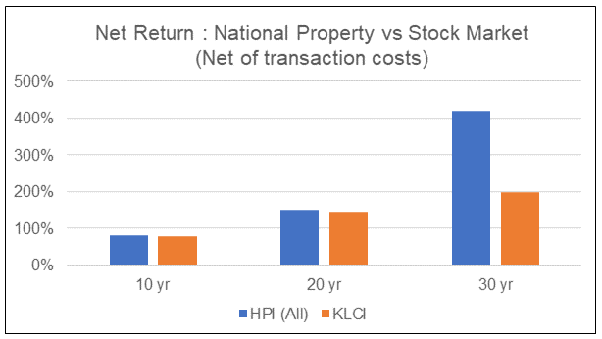
You have probably heard that a financial crisis is the perfect time to buy bonds. This is true. The government will reduce interest rates when there is a financial crisis. This is good news for bonds. Avoid bonds issued by companies with poor credit ratings. Instead, keep your higher returns in equities. If you haven't yet invested in bonds, it is a good idea to do so. Here are a few things to consider:
Buying bonds at a premium
You should consider the best way to acquire premium bonds. Premium bonds tend to be more expensive than municipal bonds. However you will still get tax-free coupons from munis. Premium bonds could have an accretion tax-advantaged feature that can result in capital gains or ordinary income at maturity. This is why you need to thoroughly analyze your investment strategy before buying these types of bonds.

Premium bonds are best known for their higher interest rates. Premium bonds might require greater initial investments. These premium bonds are often sold for a premium because they have a lower probability of default. A prime example of a premium bond is an 8% bond issued by ABC International. The bond can be bought at a price higher than its par value, provided it has a higher credit score.
You can buy individual bonds through your brokerage account. You can purchase bonds through the same account you use to trade stocks and mutual funds. Most brokerages will permit you to purchase these bonds. Compare their fees and the type of investment they offer. By consulting a professional financial advisor, you might be able to purchase bonds at a premium. Smartasset is an internet directory where you can find local advisors and make investments with them.
Bonds at a Discount
A discount on bonds is good if the coupon rates are lower than market rate. This is because investors want higher profits and don't want low coupon rates. The discount that is offered upfront offsets this. Here are some tips on buying bonds at a discount
Be sure to understand the regulations and rules that apply to bonds you are considering purchasing at a discount before buying them. First, it is important to understand how municipal bonds are treated tax-wise. Some bonds are exempt from capital gains tax, while others are subject to ordinary income tax rates. You should make sure you know which bonds are exempt from capital gains tax. The current tax rate for municipal bonds hovers around 28%. It is best to only invest in bonds with long-term maturities.

Second, if you're buying individual bonds, you should look for a company that sells bonds at a discount. People who purchase individual bonds typically do so through a broker who will then add their commission to bond prices. The discount may not be enough to allow you to purchase. Remember that you can always cash in early if the current market rate is not satisfactory.
FAQ
How does inflation affect the stock market
Inflation has an impact on the stock market as investors have to spend less dollars each year in order to purchase goods and services. As prices rise, stocks fall. This is why it's important to buy shares at a discount.
How are securities traded?
Stock market: Investors buy shares of companies to make money. Companies issue shares to raise capital by selling them to investors. When investors decide to reap the benefits of owning company assets, they sell the shares back to them.
Supply and Demand determine the price at which stocks trade in open market. The price goes up when there are fewer sellers than buyers. Prices fall when there are many buyers.
There are two options for trading stocks.
-
Directly from the company
-
Through a broker
Why is a stock security?
Security is an investment instrument whose worth depends on another company. It may be issued either by a corporation (e.g. stocks), government (e.g. bond), or any other entity (e.g. preferred stock). The issuer promises to pay dividends and repay debt obligations to creditors. Investors may also be entitled to capital return if the value of the underlying asset falls.
What is a bond and how do you define it?
A bond agreement between 2 parties that involves money changing hands in exchange for goods or service. Also known as a contract, it is also called a bond agreement.
A bond is usually written on a piece of paper and signed by both sides. This document contains information such as date, amount owed and interest rate.
A bond is used to cover risks, such as when a business goes bust or someone makes a mistake.
Many bonds are used in conjunction with mortgages and other types of loans. This means the borrower must repay the loan as well as any interest.
Bonds are used to raise capital for large-scale projects like hospitals, bridges, roads, etc.
When a bond matures, it becomes due. This means that the bond owner gets the principal amount plus any interest.
If a bond isn't paid back, the lender will lose its money.
What is a REIT and what are its benefits?
A real estate investment Trust (REIT), or real estate trust, is an entity which owns income-producing property such as office buildings, shopping centres, offices buildings, hotels and industrial parks. They are publicly traded companies that pay dividends to shareholders instead of paying corporate taxes.
They are similar to corporations, except that they don't own goods or property.
Statistics
- "If all of your money's in one stock, you could potentially lose 50% of it overnight," Moore says. (nerdwallet.com)
- The S&P 500 has grown about 10.5% per year since its establishment in the 1920s. (investopedia.com)
- For instance, an individual or entity that owns 100,000 shares of a company with one million outstanding shares would have a 10% ownership stake. (investopedia.com)
- Ratchet down that 10% if you don't yet have a healthy emergency fund and 10% to 15% of your income funneled into a retirement savings account. (nerdwallet.com)
External Links
How To
How to Invest in Stock Market Online
You can make money by investing in stocks. There are many methods to invest in stocks. These include mutual funds or exchange-traded fund (ETFs), hedge money, and others. Your investment strategy will depend on your financial goals, risk tolerance, investment style, knowledge of the market, and overall market knowledge.
First, you need to understand how the stock exchange works in order to succeed. Understanding the market and its potential rewards is essential. Once you know what you want out of your investment portfolio, then you can start looking at which type of investment would work best for you.
There are three types of investments available: equity, fixed-income, and options. Equity is ownership shares in companies. Fixed income refers debt instruments like bonds, treasury bill and other securities. Alternatives include things like commodities, currencies, real estate, private equity, and venture capital. Each option has its pros and cons so you can decide which one suits you best.
Once you have determined the type and amount of investment you are looking for, there are two basic strategies you can choose from. One strategy is called "buy-and-hold." You purchase a portion of the security and don't let go until you die or retire. The second strategy is "diversification". Diversification means buying securities from different classes. If you buy 10% each of Apple, Microsoft and General Motors, then you can diversify into three different industries. Buying several different kinds of investments gives you greater exposure to multiple sectors of the economy. You can protect yourself against losses in one sector by still owning something in the other sector.
Risk management is another important factor in choosing an investment. Risk management is a way to manage the volatility in your portfolio. If you are only willing to take on 1% risk, you can choose a low-risk investment fund. On the other hand, if you were willing to accept a 5% risk, you could choose a higher-risk fund.
The final step in becoming a successful investor is learning how to manage your money. The final step in becoming a successful investor is to learn how to manage your money. A good plan should include your short-term, medium and long-term goals. Retirement planning is also included. Sticking to your plan is key! Don't get distracted by day-to-day fluctuations in the market. Stay true to your plan, and your wealth will grow.